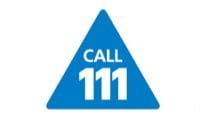The decommissioning of NHS Direct’s 0845 telephone service in favour of NHS 111 has cost nearly £70m, says a National Audit Office report.
Meanwhile, the organisation’s decision to cancel contracts to provide the new NHS 111 service in North Essex and Cornwall mean these areas are unlikely to get a new service before early next year.
NHS Direct’s 0845 number and GP out-of-hours calls are being replaced by the nationwide roll-out of health advice line NHS 111, partly in an effort to save on the £20 per-call-cost of the NHS Direct number.
However, an NAO report released today on the financial status of the NHS highlights that closure of the service has come at a high financial cost.
“NHS Direct had a deficit of £68m, largely due to the decommissioning costs of the 0845 telephone service,” says the report.
“If these exceptional costs and accounting adjustments for impairments are excluded, NHS Direct had an underlying surplus of £.04m in 2012-13.”
NHS 111 was due to go live across England by April this year, but several areas have experienced delays.
A number of areas which have gone live have failed to cope with the volume of calls, putting significant pressure on emergency and ambulance services. NHS Direct’s 0845 service has been used as a national contingency back-up in several places.
NHS Direct was due to deliver two NHS 111 contracts in Essex and Cornwall this autumn, but cancelled them last month and admitted that all of its 111 contracts are “financially unsustainable.”
Barbara Hakin, the chief operating officer for NHS England, told today’s board meeting that the search for alternative providers has begun.
“We are looking at early 2014 to ensure it’s safe and ready,” she said.
In May, NHS England commissioned an urgent review of the NHS 111 roll-out and its sustainability.
Completed by independent advisor Peter Garland and presented at today’s board meeting, it found that pressure for rolling out the service came from financial difficulties facing the NHS.
“NHS Direct’s 0845 service with cost per call of over £20 was perceived as too expensive and the call centre component of GP out of hours services, estimated to be between 20% and 40% of total costs, was also seen as an area where savings could be made,” says the report.
Garland found that after the initial pilots there should have been a “more formal re-evaluation” of the programme before the national roll-out.
“By the time the final report on the pilots was available in the autumn of 2012, the decision had been taken to roll-out the programme nationally from April 2013 so there was little time available for amending the plans for NHS 111 implementation,” says the report.
The implementation date had been set before NHS England took over responsibility and commissioners felt pressured to stick with the go-live date.
“There may have been a perception that because this initiative was high on the political agenda and featured in the coalition agreement the imperative to meet the pre-announced timetable was very strong and that arguments for delay had to be similarly convincing,” the report says.
NHS England chair, Professor Sir Malcolm Grant said at the meeting today that the future of the NHS depended upon “our understanding on how to conduct projects” such as NHS 111 and that the launch of 111 “did not go as we wished.”
The board concluded that it had learned valuable lessons from the NHS 111 roll-out, such has having time to properly evaluate pilots, having clear protocols for handling major new initiatives and that services should only go live “after they have been subject to robust checks about quality and capacity.”
Ed Smith, non-executive director of NHS England commented: “None of this is rocket science. The interim cost of rectifying what goes at high speed is significantly higher than the end to end cost of staging it properly with proper oversight.”

